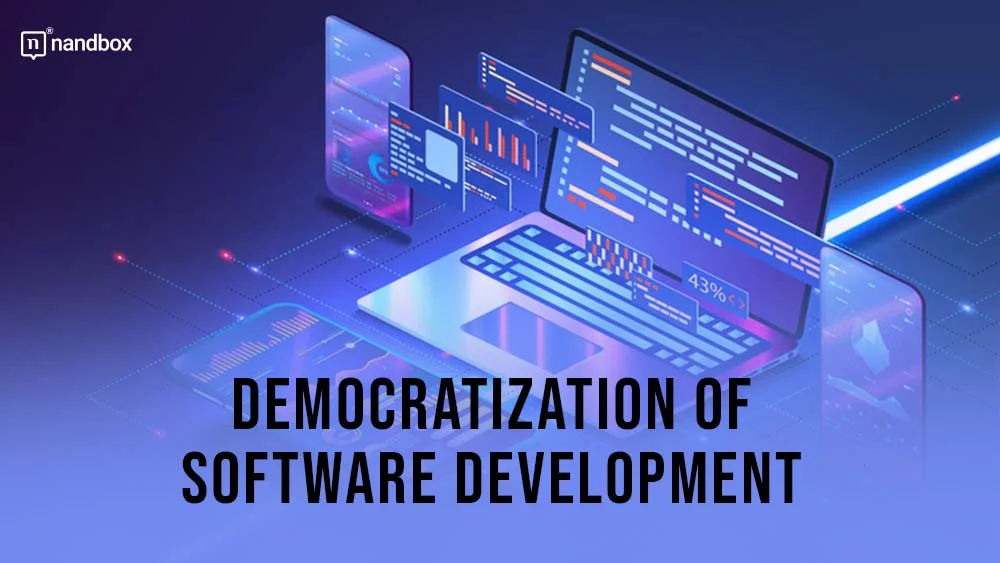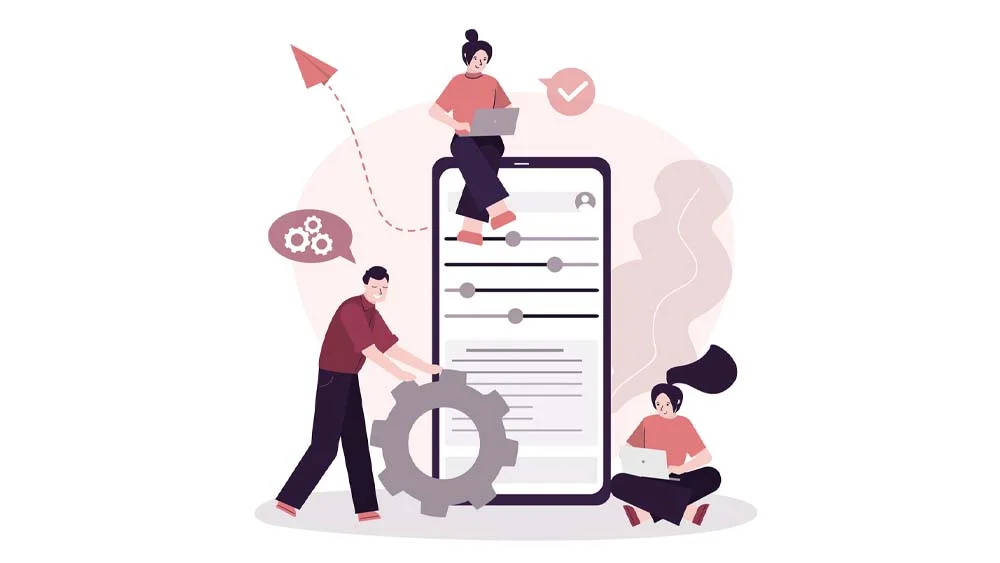From Code to Everyone: Unleashing the Power of Democratized Software and App Development
From having absolutely nothing to getting everything, as people might say. This is what could explain this article perfectly. Usually, many things that are very related or specific to a certain field are not made available or accessible to others. This applies to technology, software, and app development. However, the more technology advances, the more it becomes important to include people. Nowadays, there is a great direction for making technology and software development accessible to everyone. This is called the democratization of software development. In this article, we will explore an interesting wave that is currently taking place in the tech industry.
The Power of Democratization in the Tech Industry
The power of the democratization of software development is immaculate and needs an infinite number of words to describe how significant it is. Democratization of software development is the process of making as many tools and resources as needed available. This should be for everyone from all backgrounds, skill levels, regions, etc. The main aim of the democratization of software and app development is to make the tech industry more inclusive and broad.
Back in the day, software and app development were very limited to experts, professional developers, and development enterprises. For someone who is interested in development to access any of the tools or technologies, he would have to ride through mountains and clouds. Day by day, people have access to more sources where they can gain some knowledge about the software and app development processes and learn about the newest tech trends. This has raised many questions about why everyone should get involved as well.
A major democratization wave appeared recently to address all these questions and start creating room for everyone. This has created great opportunities for collaboration, the introduction of fresh and new perspectives, and more diversity.
The Benefits of Democratized Software and App Development
Accessibility
One of the key benefits of democratized software and app development is the increased accessibility it offers. Traditional software development often requires a deep understanding of programming languages and complex technical concepts. This can be a significant barrier for individuals who do not have a background in coding or lack the time and resources to acquire the necessary skills. Democratized development platforms and tools, on the other hand, provide intuitive interfaces and simplified workflows. These make it easier for non-technical users to create and customize software and apps. This accessibility empowers individuals and businesses to take control of their digital solutions and tailor them to their specific needs. Without needing to rely on external developers or expensive outsourcing.
Speed and Agility
Another major advantage of democratized development is the speed and agility it enables. Traditional software development cycles can be lengthy and resource-intensive, often involving multiple iterations and rounds of feedback. Software development automation can speed up the process; however, with democratized development tools, it becomes even more streamlined and iterative. Changes can be made quickly and easily, allowing for rapid prototyping and experimentation. This agility is particularly valuable in today’s fast-paced digital landscape, where businesses need to adapt and innovate quickly to stay competitive. Democratized development empowers organizations to respond to evolving market needs and customer demands in a timely manner, giving them a significant edge over their competitors.
Furthermore, democratizing software and app development promotes a culture of innovation and learning. By providing accessible tools and platforms, democratized development encourages individuals to explore their creativity and experiment with new ideas. This fosters a mindset of continuous improvement and learning. As individuals gain hands-on experience and develop new skills throughout the development process. The democratization of software and app development also promotes knowledge sharing and collaboration. As users can learn from each other’s projects, contribute to open-source communities, and collectively drive innovation forward.
Challenges and Limitations of Democratized Development
While democratizing software and app development offers numerous benefits, it is not without its challenges and limitations. Here are some of the key challenges to be aware of:
Learning curve
While democratized development platforms aim to lower the barriers to entry, there is still a learning curve involved. Users need to familiarize themselves with the platform’s interface, features, and workflows, which can take time and effort.
Customization limitations
Democratized development platforms often provide pre-built templates and components, which can limit the level of customization and flexibility. When attempting to implement complex or distinctive functionalities that the platform does not support, users might run into limitations.
Scalability and performance
Democratized development platforms may not always be suitable for large-scale or performance-critical applications. The platforms may have limitations in terms of scalability, performance optimization, and integration with external systems.
Dependency on platform providers
Democratized development platforms are owned and maintained by third-party providers. Users are dependent on these providers for ongoing support, updates, and the availability of the platform. If the platform provider discontinues or significantly changes the platform, users may face challenges in maintaining and evolving their applications.
Security and privacy concerns

Democratized development platforms often involve sharing sensitive data with third-party providers. Users need to carefully assess the security measures and privacy policies of the platform to ensure the protection of their data and intellectual property.
How Democratization is Changing the Landscape of Software Development
The democratization of software and app development is revolutionizing the way digital solutions are created and delivered. In the past, software development was a highly specialized and hoarded process, with limited opportunities for collaboration and feedback. Today, democratized development platforms and tools have transformed this landscape. Which made it easier for individuals and teams to collaborate, share ideas, and work together toward a common goal.
One of the significant changes brought about by democratization is the shift toward cloud-based development and deployment. Cloud computing has democratized access to powerful computing resources, making it easier and more cost-effective to develop and host software and apps. By leveraging the scalability and flexibility of the cloud, developers can now build and deploy applications on a global scale. In turn, reaching a wider audience and delivering a seamless user experience. Cloud-based development also enables real-time collaboration and version control, as multiple users can work on the same project simultaneously, eliminating the need for complex merging and synchronization processes.
Additionally, democratized development has given rise to the concepts of open-source software and collaborative development communities. Open-source software is a type of software in which the source code is made publicly available. So that it can be viewed, modified, and distributed by anyone. This open and collaborative approach to software development has led to the creation of vibrant communities of developers who work together to improve and enhance existing software as well as create new solutions. Open-source software not only promotes transparency and accountability but also encourages innovation and knowledge sharing. By embracing the principles of open-source development, organizations can tap into a vast pool of talent and expertise. While accelerating their innovation cycles and driving industry-wide progress at the same time.
Low Code and No Code: Two Major Game-Changers in the Democratization Play
As we previously mentioned, the democratization of apps aims to make the development process and all its tools and resources available to all. And that is exactly why we can strongly consider the no-code and low-code movements to be game-changers in such a situation.
Low-code and no-code are founded on the idea of lessening or even eradicating the effort and time that the traditional development process usually takes. In addition, their main mission is to give everyone, with or without coding knowledge, the chance to experience the process and take part in the major tech world.
For instance, no-code platforms such as the nandbox app builder offer users a great library of features while excelling at e-commerce ones. The user can create his/her app from scratch using all the tools and resources while getting the proper walkthrough and knowledge from extensive documentation.
Low-code platforms like Appian have more of a twist. Instead of only implementing pre-built features and settings, you’d have to build and establish the command yourself by using visual elements. This is great progress from writing lines of code that people other than developers never had the tools or resources to try.
Lastly, both development approaches accomplished the objectives of democratization. This is by making a very complex, expensive, and exclusive process like app development available to a large and broad audience.
What Does the Future Behold for the Democratization of Software and App Development?
The future of democratization doesn’t end with low code and no code; it continues to progress and be much more than that. With more advanced technologies and tools becoming more accessible to everyone, it is not a matter of time before the concept of democratization becomes universal and generalized. We can see now how artificial intelligence, machine learning, deep learning, and Internet of Things technologies are offered through many tools and platforms. People can now easily and seamlessly integrate advanced AI features into their apps using no-code app development platforms. This undeniably shows how powerful this approach has been and will become.






